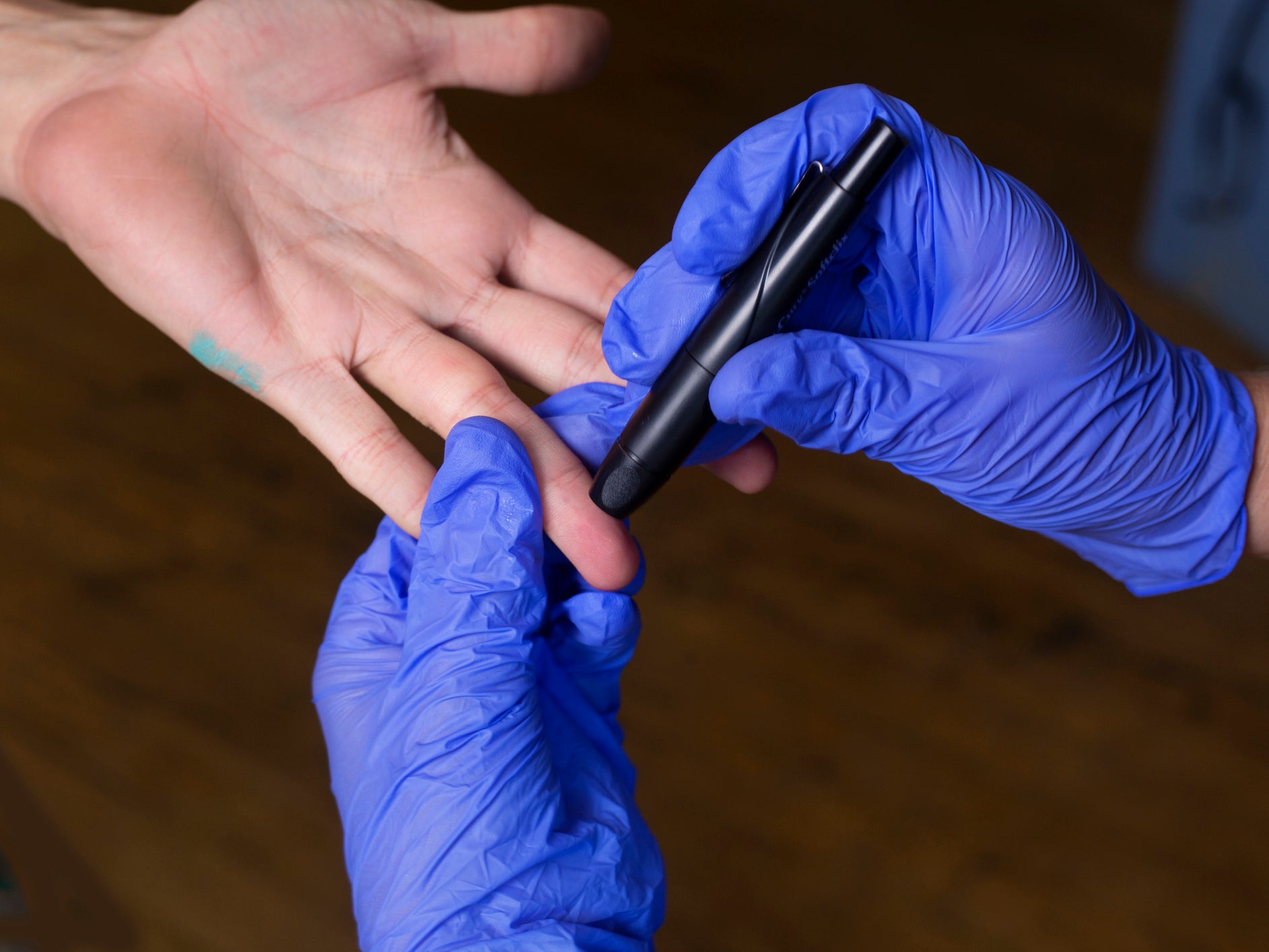Coronavirus: 10 per cent of Covid-19 patients with diabetes die within seven days of hospital admission, study says
Analysis of more than 1,300 patients in French hospitals reveals age and BMI are among key factors

A new study of Covid-19 patients shows that of those with diabetes, 10 per cent die within seven days of hospital admission, and one in five require intubation and the use of a ventilator.
The French study is the first to specifically analyse the effect of the disease in hospitalised patients with diabetes.
It reveals that 65 per cent of coronavirus patients with diabetes admitted to hospital are men, and the average age of all patients is 70.
Worse blood sugar control due to diabetes did not seem to impact a clinical outcome, but the presence of diabetic complications and increasing age increases the risk of death.
The study found that increased BMI is associated with both increased risk of needing mechanical ventilation and with increased risk of death.
The research team, which included diabetologists from University Hospital Nantes, the French National Institute of Health and Medical Research, the French National Centre for Scientific Research, and the University of Nantes, analysed 1,317 patients admitted to 53 French hospitals (both public and private) between 10-31 March.
The majority of hospitalised subjects had type 2 diabetes (89 per cent) while only 3 per cent had type 1 diabetes, with other types of diabetes in the remaining cases.
In 3 per cent of cases, diabetes was actually diagnosed during hospitalisation for Covid-19.
Microvascular complications – problems with the tiny capillaries such as those in the eye, kidney and nerves – were found in 47 per cent of the subjects in the study, while macrovascular complications, those in the veins and arteries of the heart, brain, legs, were present in 41 per cent of patients analysed.
The presence of microvascular or macrovascular complications each more than doubled the risk of death at day seven.
Across all patients in this study, by day seven, one in five (20.3 per cent) had been intubated and placed on a ventilator in intensive care, and one in 10 (10.3 per cent) had died. A further 18 per cent had been discharged home at this point.
Advanced age also substantially increased the risk of death, the study authors said, with the group of patients aged 75 and above more than 14 times more likely to die than younger patients aged under 55 years, while patients in the 65-to-74 range were three times more likely to die than those under 55 years.
Care home hit by coronavirus: A rare glimpse of life inside
Show all 18The presence of the respiratory condition obstructive sleep apnoea almost tripled the risk of death at seven days, as did the presence of dyspnoea symptoms (shortness of breath).
The study also confirmed that insulin, and indeed all treatments for modifying blood sugar, are not a risk factor for severe forms of Covid-19 and should be continued in patients with diabetes.
Encouragingly, there were no deaths in patients under 65 with type 1 diabetes, but the authors noted there were only 39 such patients in this study and other work is ongoing to establish the effect of Covid-19 in this specific population.
Increasing BMI raised the likelihood of ventilation or death at day seven.
Overall, women were 25 per cent less likely to either require ventilation or to die at day seven, but when looking at death only, men were not statistically more likely to die at day seven than women.
The authors said: “The risk factors for severe form of Covid-19 are identical to those found in the general population: age and BMI.”
They added: “Elderly populations with long-term diabetes, with advanced diabetic complications and/or treated obstructive sleep apnoea were particularly at risk of early death, and might require specific management to avoid infection with the novel coronavirus.
“BMI also appears as an independent prognostic factor for Covid-19 severity in the population living with diabetes requiring hospital admission.
“The link between obesity and Covid-19 requires further study.”
The authors plan to publish further work in the summer detailing outcomes of some 3,000 patients with diabetes hospitalised with Covid-19, looking at their status 28 days after admission to hospital.
The next study will also make more detailed comparisons of Covid-19 outcomes in patients with and without diabetes.
The research is published in Diabetologia (the journal of the European Association for the Study of Diabetes).
Subscribe to Independent Premium to bookmark this article
Want to bookmark your favourite articles and stories to read or reference later? Start your Independent Premium subscription today.

Join our commenting forum
Join thought-provoking conversations, follow other Independent readers and see their replies